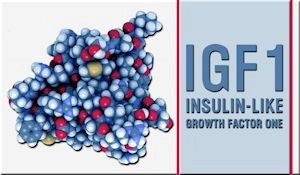Introduction to Short Bowel Syndrome
Short Bowel Syndrome (SBS) is a malabsorptive condition that occurs primarily as a result of surgical resection of the small intestine, leading to a reduced capacity to absorb nutrients and fluids. This debilitating disorder affects patients' quality of life and poses significant challenges in clinical management. In the quest for effective treatments, Genotropin, a recombinant human growth hormone, has emerged as a promising therapeutic option.
Understanding Genotropin
Genotropin, generically known as somatropin, is a bioidentical growth hormone used to treat various growth disorders and conditions associated with growth hormone deficiency. Its role extends beyond pediatric care, as it has been investigated for its potential benefits in adults, particularly those with SBS. Genotropin works by stimulating the liver to produce insulin-like growth factor 1 (IGF-1), which promotes cell growth and proliferation, potentially aiding in the adaptation of the remaining bowel tissue in SBS patients.
Genotropin's Impact on Short Bowel Syndrome
In patients with SBS, the administration of Genotropin has been associated with enhanced intestinal adaptation. Studies have shown that growth hormone therapy can lead to an increase in the absorptive surface area of the remaining bowel, thereby improving nutrient absorption and reducing dependency on parenteral nutrition. This adaptation is crucial for patients, as it can significantly improve their nutritional status and overall well-being.
Clinical Evidence Supporting Genotropin Use
Clinical trials have provided evidence supporting the use of Genotropin in SBS. A notable study published in the *New England Journal of Medicine* demonstrated that patients receiving growth hormone therapy experienced a significant reduction in the volume of parenteral nutrition required, indicating improved intestinal function. These findings suggest that Genotropin could be a valuable component of a multimodal treatment approach for SBS.
Administration and Dosage Considerations
When prescribing Genotropin for SBS, healthcare providers must consider the appropriate dosage and administration schedule. Typically, Genotropin is administered subcutaneously, and the dosage may vary based on individual patient needs and response to therapy. Close monitoring is essential to assess the effectiveness of treatment and to make necessary adjustments.
Potential Side Effects and Safety Profile
As with any medication, Genotropin is not without potential side effects. Common adverse reactions include injection site reactions, joint pain, and fluid retention. More serious side effects, such as increased risk of diabetes or worsening of pre-existing diabetes, require vigilant monitoring. Healthcare providers must weigh the benefits against the risks and tailor treatment plans accordingly.
The Role of Genotropin in a Holistic Treatment Approach
While Genotropin offers promising results, it is most effective when used as part of a comprehensive treatment strategy for SBS. This may include dietary modifications, nutritional supplements, and, in some cases, surgical interventions. A multidisciplinary approach, involving gastroenterologists, dietitians, and endocrinologists, is crucial to optimize patient outcomes.
Conclusion: The Future of Genotropin in SBS Management
The use of Genotropin in the treatment of Short Bowel Syndrome represents a significant advancement in the field of gastroenterology. As research continues to evolve, the potential for Genotropin to improve the lives of SBS patients remains a focal point of interest. American males with SBS, in particular, may benefit from this therapy, as it offers a pathway to enhanced intestinal function and a better quality of life. As with any medical treatment, ongoing research and clinical trials will further elucidate the role of Genotropin in managing this challenging condition.
In conclusion, Genotropin's role in the treatment of Short Bowel Syndrome is a testament to the ongoing efforts to improve patient care through innovative therapies. By understanding and leveraging the potential of growth hormone therapy, healthcare providers can offer new hope to those affected by SBS.
Contact Us For A Fast And Professional Response

- Genotropin's Impact on Lipid Profiles in American Men with Growth Hormone Deficiency [Last Updated On: February 24th, 2025] [Originally Added On: February 24th, 2025]
- Unveiling the Potential of Genotropin: A Comprehensive Review of Clinical Trials and Outcomes [Last Updated On: March 3rd, 2025] [Originally Added On: March 3rd, 2025]
- Exploring the Impact of Genotropin on Metabolic Health in American Adult Males [Last Updated On: March 12th, 2025] [Originally Added On: March 12th, 2025]
- Unveiling the Potential of Genotropin in Managing Idiopathic Short Stature Among American Males [Last Updated On: March 15th, 2025] [Originally Added On: March 15th, 2025]
- Unveiling the Synergy: Genotropin's Role in Treating Growth Hormone Deficiency Amidst Sleep Disorders [Last Updated On: March 16th, 2025] [Originally Added On: March 16th, 2025]
- Unveiling the Respiratory Benefits of Genotropin in Growth Hormone Deficient Males [Last Updated On: March 16th, 2025] [Originally Added On: March 16th, 2025]
- Exploring the Therapeutic Potential of Genotropin in Treating Growth Hormone Deficiency and Osteoporosis in American Males [Last Updated On: March 16th, 2025] [Originally Added On: March 16th, 2025]
- Unleashing Potential: Genotropin's Impact on Exercise Capacity in Growth Hormone Deficient American Males [Last Updated On: March 16th, 2025] [Originally Added On: March 16th, 2025]
- Unlocking the Potential of Genotropin Therapy: Overcoming Psychological Barriers in American Males [Last Updated On: March 16th, 2025] [Originally Added On: March 16th, 2025]
- Exploring the Impact of Genotropin on Bladder Function in American Males with Growth Hormone Deficiency [Last Updated On: March 16th, 2025] [Originally Added On: March 16th, 2025]
- Genotropin: Enhancing Life Quality in Adults with Childhood-Onset Growth Hormone Deficiency [Last Updated On: March 17th, 2025] [Originally Added On: March 17th, 2025]
- Genotropin's Impact on Cardiovascular Health in American Males with Growth Hormone Deficiency [Last Updated On: March 17th, 2025] [Originally Added On: March 17th, 2025]
- Genotropin Therapy Transition: From Pediatric to Adult Care for American Males [Last Updated On: March 18th, 2025] [Originally Added On: March 18th, 2025]
- Strategies to Enhance Genotropin Therapy Compliance in American Males with GHD [Last Updated On: March 19th, 2025] [Originally Added On: March 19th, 2025]
- Genotropin's Efficacy in Treating Growth Disorders in American Males: A Comprehensive Review [Last Updated On: March 19th, 2025] [Originally Added On: March 19th, 2025]
- Genotropin: Understanding Pharmacokinetics and Pharmacodynamics for Growth Hormone Deficiency Treatment [Last Updated On: March 20th, 2025] [Originally Added On: March 20th, 2025]
- Genotropin Enhances Cognitive Function in American Males with Growth Hormone Deficiency [Last Updated On: March 20th, 2025] [Originally Added On: March 20th, 2025]
- Genotropin: Enhancing Elderly Men's Vitality with Growth Hormone Therapy [Last Updated On: March 20th, 2025] [Originally Added On: March 20th, 2025]
- Genotropin: Enhancing Growth in SGA Children and Improving Quality of Life [Last Updated On: March 20th, 2025] [Originally Added On: March 20th, 2025]
- Genotropin: Revolutionizing Hypopituitarism Treatment for American Males [Last Updated On: March 21st, 2025] [Originally Added On: March 21st, 2025]
- Debunking Myths: Understanding Genotropin Therapy for American Males [Last Updated On: March 21st, 2025] [Originally Added On: March 21st, 2025]
- Genotropin Enhances Immune Function in Growth Hormone Deficient American Males [Last Updated On: March 22nd, 2025] [Originally Added On: March 22nd, 2025]
- Genotropin Therapy for American Males: Benefits, Side Effects, and Management Strategies [Last Updated On: March 22nd, 2025] [Originally Added On: March 22nd, 2025]
- Genotropin: Effective Treatment for Growth Hormone Deficiency Due to Genetic Mutations [Last Updated On: March 22nd, 2025] [Originally Added On: March 22nd, 2025]
- Genotropin Therapy: Enhancing Growth in American Males with GHD [Last Updated On: March 23rd, 2025] [Originally Added On: March 23rd, 2025]
- Genotropin: Cost-Effective GHD Treatment for American Males [Last Updated On: March 23rd, 2025] [Originally Added On: March 23rd, 2025]
- Genotropin: Enhancing Growth and Quality of Life in Cystic Fibrosis Patients with GHD [Last Updated On: March 23rd, 2025] [Originally Added On: March 23rd, 2025]
- Genotropin's Efficacy in Treating GHD Post-TBI in American Males: A Review [Last Updated On: March 24th, 2025] [Originally Added On: March 24th, 2025]
- Genotropin Enhances Skin Health in American Men with Growth Hormone Deficiency [Last Updated On: March 24th, 2025] [Originally Added On: March 24th, 2025]
- Genotropin's Impact on Growth Hormone Deficiency in American Males with Down Syndrome [Last Updated On: March 24th, 2025] [Originally Added On: March 24th, 2025]
- Genotropin's Role in Managing Growth Hormone Deficiency and Diabetes: Efficacy and Safety [Last Updated On: March 24th, 2025] [Originally Added On: March 24th, 2025]
- Genotropin Therapy: Enhancing Growth and Well-being in American Males [Last Updated On: March 24th, 2025] [Originally Added On: March 24th, 2025]
- Genotropin Therapy: Long-Term Outcomes and Care for American Males with GHD [Last Updated On: March 24th, 2025] [Originally Added On: March 24th, 2025]
- Genotropin: A Vital Treatment for Growth Hormone Deficiency from Pituitary Tumors in Males [Last Updated On: March 24th, 2025] [Originally Added On: March 24th, 2025]
- Genotropin: A Vital Treatment for Growth Hormone Deficiency in American Males [Last Updated On: March 25th, 2025] [Originally Added On: March 25th, 2025]
- Genotropin's Impact on Growth in American Males with Sickle Cell and GHD [Last Updated On: March 25th, 2025] [Originally Added On: March 25th, 2025]
- Genotropin's Impact on Emotional Well-being in American Males with GHD [Last Updated On: March 25th, 2025] [Originally Added On: March 25th, 2025]
- Genotropin's Multifaceted Benefits for American Males with Turner Syndrome [Last Updated On: March 25th, 2025] [Originally Added On: March 25th, 2025]
- Genotropin: Managing Growth Hormone Deficiency in American Males Post-Radiation Therapy [Last Updated On: March 25th, 2025] [Originally Added On: March 25th, 2025]
- Genotropin Enhances Sleep Quality in American Men with Growth Hormone Deficiency [Last Updated On: March 25th, 2025] [Originally Added On: March 25th, 2025]
- Genotropin: Restoring Growth and Hope for Childhood Cancer Survivors [Last Updated On: March 26th, 2025] [Originally Added On: March 26th, 2025]
- Genotropin's Impact on Reproductive Health in American Males with GHD [Last Updated On: March 26th, 2025] [Originally Added On: March 26th, 2025]
- Genotropin: Enhancing Body Composition and Health in American Males with GHD [Last Updated On: March 26th, 2025] [Originally Added On: March 26th, 2025]
- Genotropin's Impact on Dental Health in American Males with Growth Hormone Deficiency [Last Updated On: March 26th, 2025] [Originally Added On: March 26th, 2025]
- Genotropin's Efficacy in Treating GHD and RA in American Males: Benefits and Considerations [Last Updated On: March 27th, 2025] [Originally Added On: March 27th, 2025]
- Genotropin Enhances Exercise Capacity in American Males with Growth Hormone Deficiency [Last Updated On: March 27th, 2025] [Originally Added On: March 27th, 2025]
- Genotropin Therapy Transition Strategies for American Males with Growth Hormone Deficiency [Last Updated On: March 28th, 2025] [Originally Added On: March 28th, 2025]
- Genotropin's Potential Benefits on Hearing in American Boys with Growth Hormone Deficiency [Last Updated On: March 28th, 2025] [Originally Added On: March 28th, 2025]
- Genotropin's Role in Managing Growth Hormone Deficiency in HIV-Positive American Males [Last Updated On: March 28th, 2025] [Originally Added On: March 28th, 2025]
- Genotropin Therapy for American Males: Nutritional Strategies for Optimal Growth and Health [Last Updated On: March 28th, 2025] [Originally Added On: March 28th, 2025]
- Strategies to Enhance Genotropin Therapy Adherence in American Adolescent Males [Last Updated On: March 28th, 2025] [Originally Added On: March 28th, 2025]
- Genotropin Therapy: Enhancing Life Quality for American Males with Growth Hormone Deficiency [Last Updated On: March 28th, 2025] [Originally Added On: March 28th, 2025]
- Genotropin's Impact on American Males with GHD and ASD: Efficacy and Considerations [Last Updated On: March 28th, 2025] [Originally Added On: March 28th, 2025]
- Genotropin Therapy for GHD in American Males with Epilepsy: Benefits and Risks [Last Updated On: March 28th, 2025] [Originally Added On: March 28th, 2025]
- Genotropin's Impact on Vision in American Males with Growth Hormone Deficiency [Last Updated On: March 28th, 2025] [Originally Added On: March 28th, 2025]
- Genotropin's Efficacy in Treating GHD in American Males with Asthma [Last Updated On: March 29th, 2025] [Originally Added On: March 29th, 2025]
- Genotropin: Advancing Treatment for GHD and Thyroid Disorders in American Men [Last Updated On: March 29th, 2025] [Originally Added On: March 29th, 2025]
- Overcoming Psychological Barriers to Genotropin Therapy in American Males [Last Updated On: March 30th, 2025] [Originally Added On: March 30th, 2025]
- Genotropin's Impact on Hair Growth in American Men with Growth Hormone Deficiency [Last Updated On: March 30th, 2025] [Originally Added On: March 30th, 2025]
- Genotropin's Impact on Kidney Function in American Males with Growth Hormone Deficiency [Last Updated On: March 31st, 2025] [Originally Added On: March 31st, 2025]
- Genotropin: Managing Growth Hormone Deficiency in Obese American Males [Last Updated On: April 2nd, 2025] [Originally Added On: April 2nd, 2025]
- Genotropin: A Promising Treatment for Growth Hormone Deficiency and Chronic Fatigue Syndrome [Last Updated On: April 2nd, 2025] [Originally Added On: April 2nd, 2025]
- Genotropin Therapy Guide for American Males with Growth Hormone Deficiency [Last Updated On: April 5th, 2025] [Originally Added On: April 5th, 2025]
- Genotropin Therapy: Enhancing Communication for American Males' Health Outcomes [Last Updated On: April 7th, 2025] [Originally Added On: April 7th, 2025]
- Genotropin's Impact on Lung Function in American Males with Growth Hormone Deficiency [Last Updated On: April 7th, 2025] [Originally Added On: April 7th, 2025]
- Genotropin's Efficacy in Treating GHD and Fibromyalgia in American Males [Last Updated On: April 8th, 2025] [Originally Added On: April 8th, 2025]
- Genotropin's Impact on Liver Function in American Men with Growth Hormone Deficiency [Last Updated On: April 8th, 2025] [Originally Added On: April 8th, 2025]
- Genotropin: Treating Growth Hormone Deficiency and Anemia in American Males [Last Updated On: April 9th, 2025] [Originally Added On: April 9th, 2025]
- Genotropin Enhances Quality of Life in MS Patients with Growth Hormone Deficiency [Last Updated On: April 9th, 2025] [Originally Added On: April 9th, 2025]
- Genotropin's Impact on Joint Health in American Males with Growth Hormone Deficiency [Last Updated On: April 10th, 2025] [Originally Added On: April 10th, 2025]
- Genotropin Therapy for American Males: Ethical Considerations and Access [Last Updated On: April 11th, 2025] [Originally Added On: April 11th, 2025]
- Genotropin's Efficacy in Treating GHD and Osteoporosis in American Males [Last Updated On: April 12th, 2025] [Originally Added On: April 12th, 2025]
- Genotropin: Tailored Treatment for GHD and Hypertension in American Males [Last Updated On: April 12th, 2025] [Originally Added On: April 12th, 2025]
- Overcoming Cultural Barriers to Genotropin Therapy in American Males [Last Updated On: April 13th, 2025] [Originally Added On: April 13th, 2025]
- Genotropin's Impact on Digestive Health in American Males with Growth Hormone Deficiency [Last Updated On: April 15th, 2025] [Originally Added On: April 15th, 2025]

















